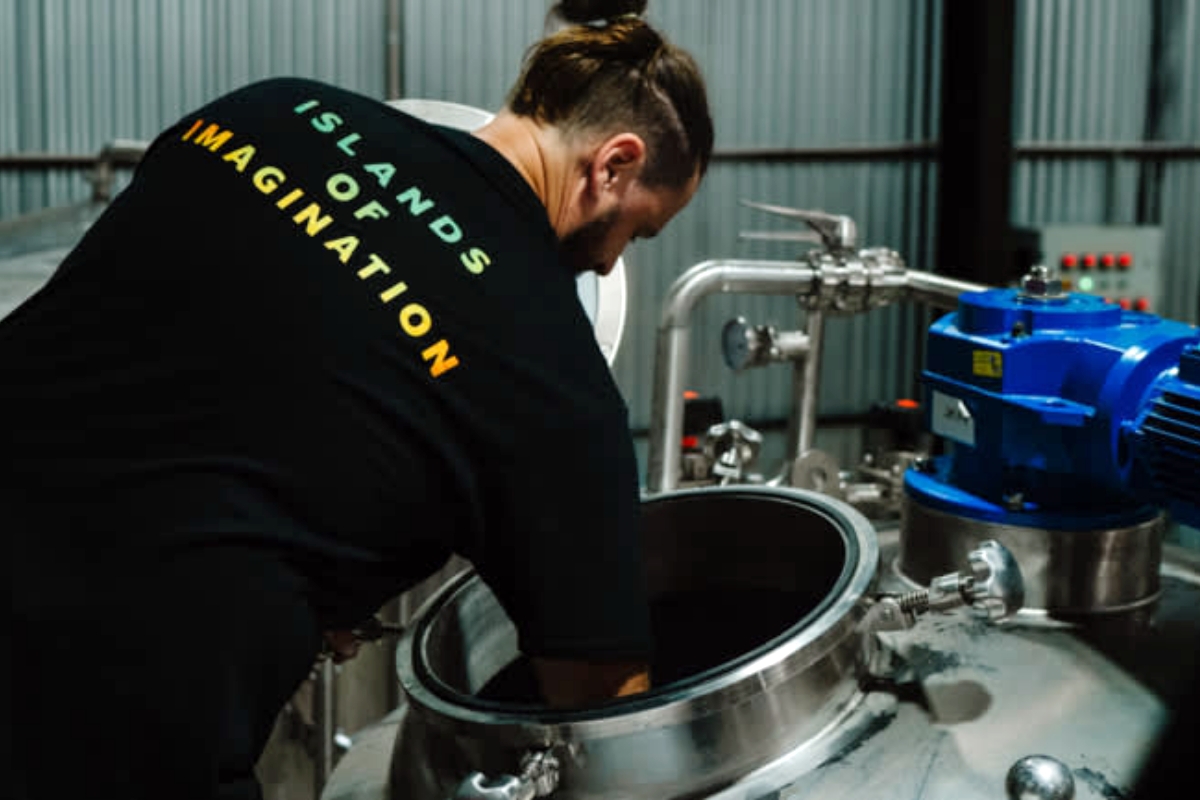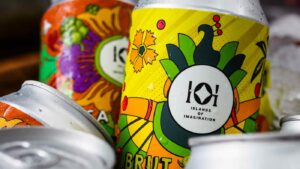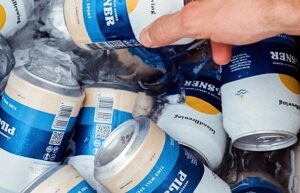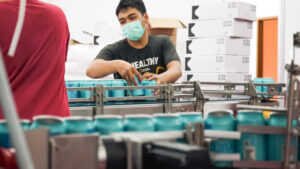
Just like the rest of the world, authorities in Bali asked people to stay at home during the pandemic which reduced bar and service hours and within months, tourist visits plummeted to zero.
“That was the moment when we realized this is a problem,” brewery owner Putu Wiranatha said.
He faced a decision that a lot of people had to make: delay the launch of his new brewery — or carry on.
Nearly two years later, his brewery Kura Kura is a successful venture along with a handful of small companies on the cusp of disrupting Indonesia’s beer market.
Along with Bali-based breweries Islands Of Imagination  and Island Brewing, Kura Kura is leading the way in Southeast Asia’s largest economy, a market long dominated by a handful of mass-produced lagers.
and Island Brewing, Kura Kura is leading the way in Southeast Asia’s largest economy, a market long dominated by a handful of mass-produced lagers.
 The three breweries all launched during the pandemic, but even amid the global health crisis, suppliers say demand for craft beer is growing — and fast.
The three breweries all launched during the pandemic, but even amid the global health crisis, suppliers say demand for craft beer is growing — and fast.
“There is a gold rush for craft beer in Indonesia right now,” said Aaron Grieser, the founder of Beervana, a pioneering Southeast Asian craft beer distributor that has a presence in 10 cities across the region. “We’re all saying it in the industry — the 2022-23 fiscal year is going to be the year of the craft beer boom.”
Beer in Indonesia took a slight dip, worth over $1 billion in 2020, according to Euromonitor International, but the industry showed signs of bouncing back in the second half of last year.
 “It’s been tough and we don’t really know when it is going to end,” Wiranatha said. “But we’ve built Kura Kura during the pandemic and we’re at a point now where we are able to fund our own growth, we’re stable and going steady.”
“It’s been tough and we don’t really know when it is going to end,” Wiranatha said. “But we’ve built Kura Kura during the pandemic and we’re at a point now where we are able to fund our own growth, we’re stable and going steady.”
Since launching, the company has grown to employ 25 people and expanded distribution across Java, Indonesia’s most populous island. Wiranatha plans to double production from 2021 to about 400,000 liters this year, while adding a hazy IPA to his pale ale and lager already on the market.
Started by Indonesian Laura Prinsloo and her South African husband Pieter Prinsloo, the microbrewery has six styles, including a lager using rice sourced from Bali’s UNESCO-protected Jatiluwih rice fields, and a wheat beer incorporating salak — or snake fruit — which is native to Indonesia.
“It is a completely new market, an untapped market,” said Pieter, who oversees production at the company. “Two years ago there was virtually no craft beer in Indonesia. Now, suddenly there is a whole bunch of us popping up.”
Indonesia’s two main beer markets, Jakarta and Bali, have the largest number of bars and dining scenes.
While there are lots of breweries looking to set up shop here, Indonesia’s barriers to entry are steep and pose challenges for growth in the sector.
Government regulations are the biggest challenge, followed by logistical ones such as inadequate cold chain infrastructure and sourcing ingredients from overseas, according to beer companies.
Indonesia has a limited number of alcohol licenses and will not be producing more. For companies that manage to secure one, building a brewery then requires approval at district, provincial and central government levels. Even getting the approval for a new product can take months at a time.
“It is very highly regulated,” said Laura Prinsloo. “Just getting the license itself needs to be approved by so many layers on the government side.”
Predominantly-Hindu Bali has emerged as a brewing hot spot because the government is seen as more accommodating to alcohol businesses. Islamic parties in Indonesia, the world’s largest Muslim-majority nation, have long called for a ban on alcohol consumption and in 2015 successfully ended sales at convenience stores outside Bali.
“What you’ve seen in every other country, including Thailand, Vietnam, Singapore and others in the region, is that once people get a taste for the new styles it’s pretty easy to build a following,” he said.
“If you look at other places, craft beer at maturity will be about 20% to 25% of the beer market value by revenue. I don’t see why that would be different in Indonesia.”
Photos courtesy of Kura Kura, Islands Of Imagination, Island Brewing
